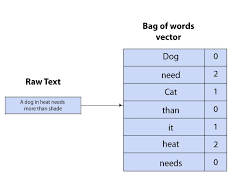If you were to ask a sales rep why they chose a job in sales, they’d probably tell you something like, “I love helping to people. I’m ambitious and goal-oriented, and no two days are ever the same.”
The reality, however, is that a lot of time in sales isn’t spent selling. Recent data suggests that sales reps dedicate only 28% of their time to actual selling, with the rest swallowed up by administrative tasks and non-revenue-generating work. To ease this burden, sales teams are turning to AI sales agents, enabling them to focus more on building relationships and closing deals.
Below, we explore the different types of AI sales agents and how businesses are using them to increase productivity, efficiency, and revenue.
What is an AI sales agent?
AI sales agents are autonomous applications that analyze and learn from sales and customer data to perform tasks with little or no human intervention. These agents can manage a wide range of activities, from top-of-funnel tasks like nurturing leads via email outreach, answering questions, booking meetings, and generating quotes to more integrated sales support like buyer roleplays and coaching.
Unlike simple workflow automation, AI agents are capable of learning, enabling them to improve efficiency and act independently based on data and analysis. They often plug directly into existing CRMs, with pre-built capabilities or customizable configurations for specific business needs.
Types of AI sales agents
There are two primary types of AI sales agents:
- Autonomous agents: These agents act independently of human input, leveraging workflows, data, and intelligent reasoning. For example, an autonomous sales development representative (SDR) might engage inbound leads via email or chat, answer questions, and schedule sales meetings without human oversight.
- Assistive agents: These agents support humans in completing specific tasks while using autonomous reasoning. For example, a sales coaching agent might provide real-time feedback or simulate buyer interactions to prepare sellers for live conversations.
The ability to autonomously analyze data, create action plans, and execute them sets modern AI sales agents apart from traditional sales tools and bots.
Key features of AI sales agents
- Data-driven: AI sales agents rely on CRM and business data to deliver accurate, personalized outputs.
- 24/7 availability: Agents are always on, responding to inquiries and engaging leads around the clock.
- Customizable: Teams can deploy out-of-the-box solutions or tailor agents using low-code builders and APIs.
- Secure and compliant: Guardrails ensure agents operate within predefined parameters, protecting sensitive customer data.
- Scalable: Agents handle high-volume tasks without the need for additional staff.
- Integrated: AI sales agents sync with existing CRMs and sales tools, seamlessly integrating into daily workflows.
Benefits of AI sales agents
- Always-on performance: They ensure leads are engaged promptly, even outside business hours.
- Increased productivity: AI agents manage repetitive tasks, allowing reps to focus on relationship-building and closing deals.
- Improved accuracy: Powered by up-to-date data, they reduce human error.
- Higher customer satisfaction: Fast, accurate, and personalized responses enhance customer interactions.
- Scalability: They manage larger workloads without increasing headcount.
- Ease of use: Pre-built or customizable, they’re designed for quick deployment and broad use cases.
Future trends for AI sales agents
In the early days, AI in sales served primarily as a co-pilot — summarizing insights and assisting with tasks like forecasting. It often required significant human input and created siloed data challenges. Today, AI agents autonomously augment human teams, empowering them to focus on high-value tasks like building relationships.
In the near future, AI sales agents are expected to handle increasingly complex workflows and multi-step processes across diverse channels. Potential advancements include:
- Proactive issue resolution: Agents could identify and resolve customer problems before they surface.
- Streamlined coordination: AI could manage deal approvals across teams, stakeholders, and deadlines.
- Multilingual capabilities: Native support for multiple languages will enable seamless global engagement.
- Enhanced coaching: Agents may simulate real buyer personas and even join sales calls to offer real-time feedback.
- Dynamic dashboards: Teams could monitor agent performance using customizable, real-time analytics.
These developments promise to unlock new possibilities for efficiency, personalization, and customization in sales teams.
AI sales agents pushing teams into a new era
According to recent data, sales leaders are focusing on improving sales enablement, targeting new markets, and adopting new tools and technologies to drive growth. Challenges like scaling personalized interactions and hitting quotas are top of mind. AI sales agents directly address these needs, transforming sales organizations by enabling teams to offload repetitive work to autonomous systems while maintaining quality and personalization.
Who uses AI sales agents?
AI sales agents are used by sales teams to manage tasks such as lead qualification, follow-ups, meeting scheduling, and coaching. By handling repetitive activities, these agents free up reps to focus on relationship-building and closing deals, ultimately driving better outcomes for both teams and customers.













